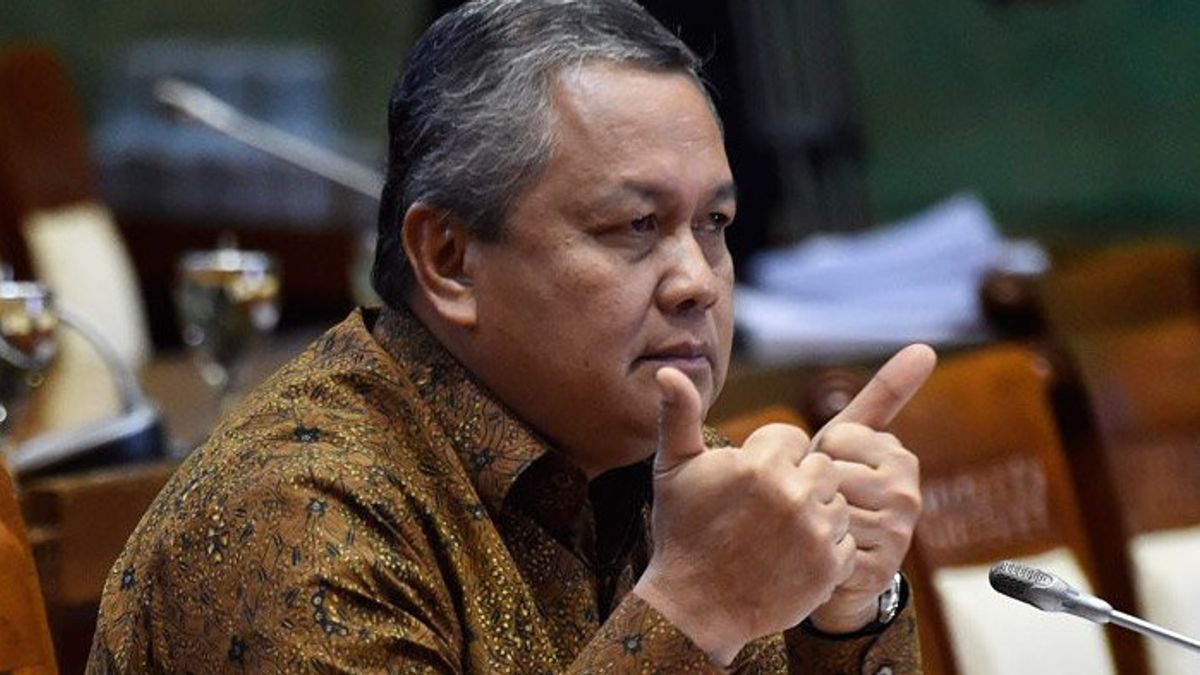JAKARTA - Bank Indonesia (BI) estimates that core inflation in the first semester of 2023 will be below 4 percent, supported by, among other things, increased household consumption after the elimination of the policy on the implementation of restrictions on community activities (PPKM) and non-construction investments.
"We make sure the core inflation is below 4 percent, our estimate is 3.5, the highest is 3.7," said BI Governor Perry Warjiyo at the Starting Year Forum 2023 event, quoted from Antara, Wednesday, January 25.
Core inflation is an inflationary component that tends to settle or persist in inflationary movements and is influenced by fundamental factors, such as demand-drain interactions, external environments in the form of exchange rates, international commodity prices, and trading partner inflation, as well as inflation expectations from traders and consumers.
Perry said that the Consumer Price Index (CPI) inflation in the first semester of 2023 is estimated to be still above 4 percent because the price is regulated by the government (administered price) and the impact of further adjustments to fuel oil (BBM) prices. However, in the second semester of 2023, IHK inflation is expected to fall.
"The IHK inflation in the second semester will fall, after September we are sure it will be below 4 percent," he said.
Bank Indonesia meyakini inflasi IHK kembali ke dalam sasaran tiga persen plus minus satu persen pada semester II 2023, dengan terus memperkuat respons kebijakan moneter dan berkoordinasi dengan pemerintah untuk memastikan penurunan dan terkendalinya inflasi tersebut.
The policy synergy between Bank Indonesia and the government sector policies and the Financial System Stability Committee is also strengthened to maintain macroeconomic and financial sector stability, encourage credit/financing to the business world, especially in priority sectors to support economic and export growth, as well as improve the economy and financial inclusive and green.
In addition, BI projects that Indonesia's economic growth in 2023 will be in the range of 4.5 percent to 5.3 percent amid the declining prospects for global economic growth. The source of Indonesia's economic growth is strong export performance, household consumption, and non-construction investment.
According to Perry, initially credit that grew a lot was working capital credit, but now it will switch to investment credit because several companies that recovered after the COVID-19 pandemic have started issuing capital expenditures, so they need investment credit.
Likewise, consumption credit is expected to increase along with improving household consumption which is in line with increasing community mobility after the elimination of the PPKM policy.
Investment is predicted to improve driven by improving business prospects, increasing foreign investment inflows (PMA), and continuing the completion of national strategic projects (PSN).
Core inflation was recorded low at the end of 2022 at 3.36 percent compared to the same period the previous year (year-on-year/yoy), much lower than Bank Indonesia's forecast of 4.61 percent (yoy).
The JCI inflation at the end of 2022 was 5.51 percent (yoy), lower than the forecast in accordance with the Consensus Forecast 6.5 percent (yoy) after the subsidized fuel price adjustment in September 2022.
The decline in core and IHK inflation is the result of close coordination between the government and Bank Indonesia through the BI monetary policy response, which front loads, pre-emptive, and forward looking, supported by controlling volatile food inflation (volatile food) through the National Food Inflation Control Movement (GNPIP).
The English, Chinese, Japanese, Arabic, and French versions are automatically generated by the AI. So there may still be inaccuracies in translating, please always see Indonesian as our main language. (system supported by DigitalSiber.id)








